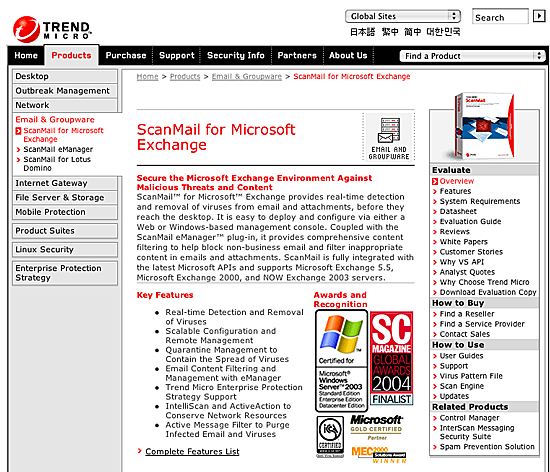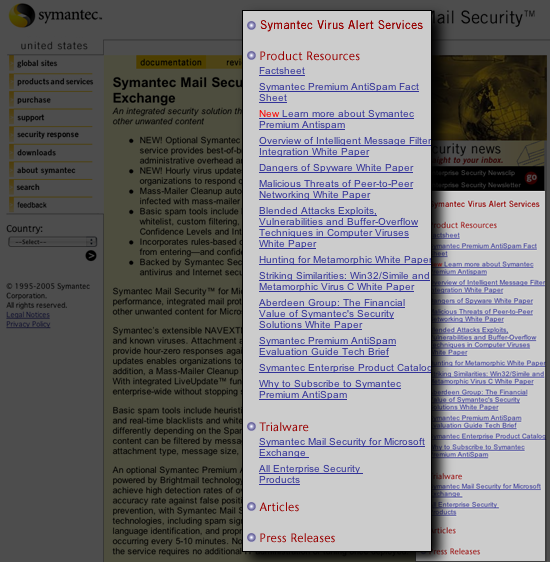One of the things that’s essential about genres is how they communicate what you would use them for. Genres are all about setting expectations for content, which is essential when you’re trying to accomplish something, and need certain kinds of information to do so.
Genres on the Web must be painfully clear, since we don’t have the physical cues to suggest what you will get. This means that links must be explicit. (This all relates to my notions of explicit design… I’m ditching that term, though don’t currently have anything in its place.)
Here’s a page that intelligently takes advantage of our understanding of genre:

The links down the right hand side use clear genre-related terms like “features,” “system requirements,” and “datasheet.” You have a good sense of what to expect before you click it. It’s also well presented — easy to scan, easy to find exactly what you want to click into.
Compare that page with a competitor’s page for a very similar product (I’ve “zoomed in” on the side bar):

Here, genre is not well-used. Yes, a bunch are “white papers,” which is a pretty well-understood genre… But you have to read these long links before you understand which genre it is. Also, what’s a “factsheet”? What’s a “tech brief”? And, “Articles?” Could a genre label be more vague?
Trend Micro’s page gives the user confidence. Symantec’s page will only leave a lot of doubt. And it’s all because of genre.
I also find genre interesting in terms of how it allows an audience to self-segment. One of the challenges of web design is presenting the right content to the right people. If you’re selling something technical, you want benefits-oriented content for the business owners, overview content for managers, and technical content for the IT types. But you don’t want direct people by role, because a business person might also be an IT person. Smart use of genres allow visitors to self-select based on their current task at hand. You don’t have to worry about role.